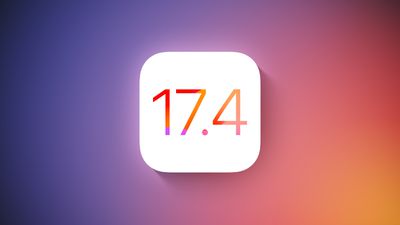Apple Walks Back Decision to Disable Home Screen Web Apps in the EU
03/04/2024
2625
Following intense criticism, Apple today walked back its plan to disable Home Screen web apps in the European Union starting with iOS 17.4.

Following the release of the second beta version of iOS 17.4, it emerged that Apple had restricted the functionality of iOS web apps in the EU. Web apps could no longer launch from the Home Screen in their own top-level window that takes up the entire screen, relegating them to a simple shortcut with an option to open within Safari instead.
The move was heavily criticized by groups like Open Web Advocacy, which started a petition in an effort to persuade Apple to reverse the change, and it even caught the attention of the European Commission. Now, Apple has backtracked and says that Home Screen web apps that use WebKit in the EU will continue to function as expected upon the release of iOS 17.4. In an update posted on Apple's developer website, the company said: Previously, Apple announced plans to remove the Home Screen web apps capability in the EU as part of our efforts to comply with the DMA. The need to remove the capability was informed by the complex security and privacy concerns associated with web apps to support alternative browser engines that would require building a new integration architecture that does not currently exist in iOS.
We have received requests to continue to offer support for Home Screen web apps in iOS, therefore we will continue to offer the existing Home Screen web apps capability in the EU. This support means Home Screen web apps continue to be built directly on WebKit and its security architecture, and align with the security and privacy model for native apps on iOS.
Developers and users who may have been impacted by the removal of Home Screen web apps in the beta release of iOS in the EU can expect the return of the existing functionality for Home Screen web apps with the availability of iOS 17.4 in early March.
Apple previously claimed that it had to make the change to how web apps work in iOS to comply with the EU's Digital Markets Act (DMA), arguing that third-party browsers used with web apps in Europe could expose users to unlawful security and privacy risks. It believed that the adjustment would only affect a small number of users. Apple still needs to make a range of changes to its platforms in the European Union, such as allowing third-party app stores, by the DMA's deadline of March 6.
Source: Macrumors












